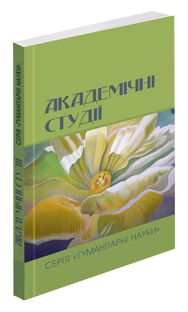Abstract
The article examines the poetic text through the prism of the cognitive-linguistic paradigm, which places the connection between language, thinking and culture at the center of the study. The author emphasizes that language within the cognitive approach functions as a tool for representing and conceptualizing reality, and the poetic text is a special form of its verbal embodiment. In the context of modern linguistic analysis of poetry, special attention is paid to such concepts as concept, conceptual metaphor, figurative scheme, mental space and frame. A significant place in the analysis is occupied by the theory of conceptual metaphor (Laikoff, Johnson), which indicates the deep metaphoricity of human thinking. In poetic discourse, metaphor is considered as a mechanism for cognitive structuring reality, capable of transmitting the abstract through the concrete. The author gives examples of how metaphorical and symbolic modeling creates semantic depth of the text, enhances the cultural specificity of images, and facilitates interpretation using intuitive cognitive scenarios. Special emphasis is placed on mental spaces and conceptual blending as tools of poetic thinking that allow combining different-level concepts within a single figurative structure. In addition, the role of intertextuality, syntactic innovations such as enjambement, and other poetic devices (rhythm, alliteration, anaphora, paradox) is analyzed, which act not only as stylistic techniques, but also as cognitive mechanisms for activating attention, memory, and associative thinking. It is substantiated how poetic speech functions as a means of cultural memory, worldview coding, and aesthetic structuring of experience. The author summarizes that the poetic text appears as a complex cognitive-cultural construction, which not only reflects reality, but also creates its conceptual models in the mind of the addressee. Attention to poetic means in this approach allows us to identify new ways of thinking through language and new models of receptive interaction between the text and the reader.
References
Bernacki M. Tekst jako partytura. O pożytkach płynących z Ingardenowskiej konkretyzacji dzieła literackiego. Ethos. 2024. Vol. 37. № 3. С. 147–161. DOI: https://doi.org/10.12887/37–2024–3–147–11
Karlińska A., Czwordon-Lis P., Maryl M. Korpus tekstowy jako narzędzie literaturoznawcze. Teksty Drugie. 2023. № 6. С. 294–319. URL: https://journals.openedition.org/td/24493 (дата звернення: 07.06.2025).
Kibski K. Gramatyczna dynamika literatury – perspektywa badawcza. Forum Poetyki. 2022. № 30. DOI: https://doi.org/10.14746/fp.2022.30.38031
Kowalska M. Kognitywne aspekty interpretacji tekstów poetyckich. Studia Polonistyczne. 2022. Vol. 45. С. 95–105.
Maj T. Metafory konceptualne w poezji: podejście kognitywno-lingwistyczne. Teksty Drugie. 2025. № 3. С. 80–90.
Mastalski A. S. Ruch i znaczenie (w) przerzutni. Studia Poetica. 2022. № 2. С. 85–98. URL: https://rep.up.krakow.pl/xmlui/handle/11716/7495 (дата звернення: 01.06.2025).
Nowak A. Analiza kognitywna metafor w poezji polskiej XXI wieku. Język i Kultura. 2021. Vol. 31. С. 120–130.
Okopień-Sławińska A. Intertekstualność, dialogowość i przytoczeniowa budowa utworu literackiego. Teksty Drugie. 2020. № 5. URL: https://tekstydrugie.pl/pl/biblio/wieloglos-o-poezji/ (дата звернення: 01.06.2025).
Wiśniewski P. Obrazowanie poetyckie a struktury kognitywne: przypadek poezji współczesnej. Przegląd Humanistyczny. 2023. Vol. 67. № 2. С. 60–70.
Zielińska E. Kognitywna poetyka: między językiem a myśleniem. Lingwistyka Stosowana. 2024. Vol. 10. № 1. С. 45–55.
Гриценко Л. М. Когнітивні механізми створення образності в поетичних текстах. Мовознавство. 2023. № 2. С. 30–36.
Дяченко Т. О. Концептуальні метафори в українській поезії: когнітивно-дискурсивний аналіз. Філологічні студії. 2024. № 5. С. 75–82.
Іванова Н. С. Когнітивні аспекти інтерпретації символіки в поетичних творах. Сучасна філологія. 2025. № 1. С. 50–58.
Коваленко О. В. Когнітивна поетика: теоретичні засади та методологія аналізу поетичного тексту. Українське мовознавство. 2021. № 4. С. 45–52.
Мельник І. П. Метафоричне мислення у сучасній українській поезії: когнітивно-лінгвістичний підхід. Наукові записки Інституту української мови. 2022. Вип. 28. С. 60–67.
Ходаковська Н. Г. Віршований текст як об’єкт лінгвістичного дослідження. World Science. 2020. Т. 2. № 2 (54). С. 52–58. DOI: https://doi.org/10.31435/rsglobal_ws/28022020/6941

This work is licensed under a Creative Commons Attribution 4.0 International License.

